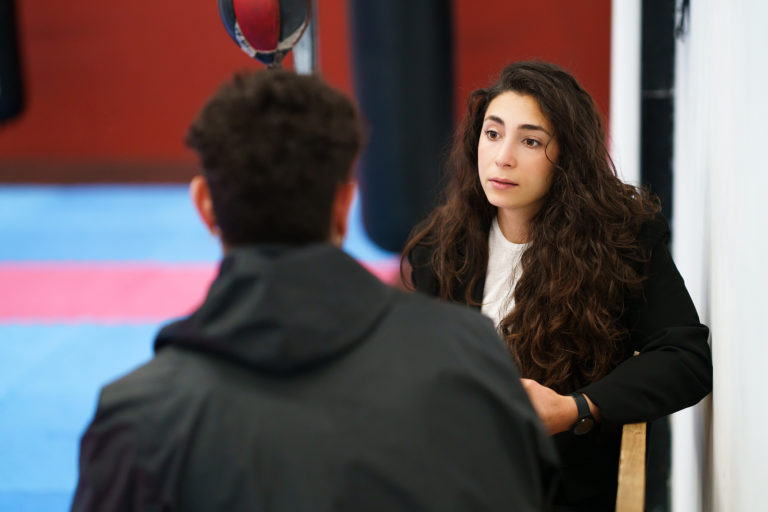How to Become a Sports Psychologist

Sports are a great way for individuals to keep active and satisfy their competitive urges. The number of Americans who exercise every day has increased significantly. Since physical fitness is now seen to be the key to all aspects of well-being, including psychological wellness, this trend has been on the rise for decades, and there's every reason to expect it will continue.
A sports psychology career may be the career for you if you like assisting athletes of all levels and skills, from Olympians to casual players, in overcoming mental obstacles like the "yips."
Step 1: Complete a Sports Psychology Degree
Starting a career in sports psychology requires both psychology and physical education. Sports psychologists are able to work in their profession due to their expertise and mastery of both mental and physical processes.
To have a chance at a career in sports psychology, you must complete an advanced degree in the subject, ideally a master’s or higher-level degree. Additionally, you need to be physically familiar with kinesiological and physiological processes during the times when your muscles are fatigued from exercise.
- Associate's Degree – Most people aiming for a career in sports psychology usually aim for a master’s degree or higher, but an associate’s degree can provide you with a small insight into the field. It will take you two years to complete.
- Bachelor's Degree – A bachelor’s degree will provide you with a very basic understanding of sports psychology. It will take you four years to complete.
- Master's Degree – A master’s degree is the minimum level of degree that will allow you to practice as a sports psychologist. You will need to first acquire a bachelor’s degree, plus n additional two years of study.
- Doctorate Degree – The highest level of education a sports psychologist can achieve. It requires either a bachelor’s degree or master’s degree, three to six additional years of study, and a number of hours working as an intern. A doctorate degree will usually come in the form of a PhD or a PsyD.
Step 2: Become Licensed as a Sports Psychologist
There are no written laws that specifically address the discipline of sports psychology. However, practically all sports psychologist aspirants should anticipate obtaining a clinical psychology license. It's crucial to go over the license criteria and exams with the state licensing board where you want to practice.
To practice clinical psychology, a lot of sports psychologists need to be in possession of a state-issued license. At least a Ph.D. in psychology is required for this level of licensing, coupled with a year or two of post-doctoral experience and passing marks on the Examination for Professional Practice in Psychology (EPPP), a national standard exam.
Internship / Practicum Experience
Although there aren't formal internships in sports psychology, degree holders may take continuing education courses via the American Psychological Association's (APA) division for sports and exercise psychology.
Students in these programs gain knowledge of the mental challenges and issues that athletes face as well as how to treat them effectively.
Examination
Beyond licensing, voluntary national certification aims to emphasize particular education and skills in sports psychology. The certification procedure often includes demonstrating your educational background, passing an exam in sports psychology, and attesting to your level of practical expertise.
An example of a certification program offered by the Association of Applied Sports Psychology (AASP) is the Certified Mental Performance Consultant designation (CMPC). Counselors, educators, and psychologists may all join the CMPC.
Via the American Board of Sports Psychology (ABSP), you can also get board certification as a sports psychologist. This certificate has significantly stricter requirements since it's only available to psychologists with a doctorate.
State Requirements
Something that every aspiring sports psychologist should plan on doing is getting a clinical psychology license. It’s important to check the requirements for and tests for this license with the state licensing board in the state where you intend to practice.
Step 3: Apply for a Sports Psychologist Job
A sports psychologist needs to be able to identify the issues that an athlete is having before they can provide assistance. In a variety of circumstances, a sports psychologist can be helpful to an athlete. For instance, some athletes might be unable to focus as a result of interpersonal difficulties in their families or in their relationships. Even elite athletes struggle with things like body image difficulties, poor self-esteem, and confidence issues, which the general public is increasingly becoming aware of. No matter how great they are, many athletes struggle with performance anxiety and exhaustion.
In certain circumstances, you’ll need to attend training seminars to get even more knowledgeable about the industry and even gather some professional references. All of this communicates to prospective employers or clients that you're qualified in sports psychology, placing you in strong contention for open positions.
If you’re serious about finding out how to become a sports psychologist, there’s something else that’s just as crucial as fulfilling all the background experience, degree, and license criteria. And it’s the one subject that can’t be taught in a classroom. Any coach will tell you that being natural is the foundation for everything else; training and attention can only take you so far. Similar to exceptional athletes, the top talents often catch the attention of recruiters in the grandstands due to their innate skill and unwavering attention on the playing fields and practice pitches.
What Careers Can I Pursue With a Sports Psychology Degree?
A sports psychologist is aware that in order to excel, athletes must be in good physical and mental condition. Sometimes, athletes require assistance in overcoming psychological problems that prevent them from performing to their greatest ability. Better sports performance often results from reducing stress and excessive anxiety before contests.
The following are common job titles held by master’s-level sports psychology graduates:
• Sports psychologist
• Clinical sports psychologist assistant
• Researcher
Where Can I Work With a Sports Psychology Degree?
A sports psychology career undoubtedly requires more energy and enthusiasm than just about any other type of psychology career. Your workplace might be situated near tennis courts and football fields or in sporting arenas where high-stakes action is taking place right in front of you. Even if you don't prefer it, working in an office may be an alternative.
There are several ways for sports psychologists to build their careers. You could choose to:
• Assist student athletes
• Specialize in a particular sport
• Provide rules and standards advice to major athletic governing groups
Additionally, exercise and performance improvement applies to more than simply organized sports. A sports psychologist may be necessary for those who are healing from something as basic as a running injury in strictly recreational settings. Opportunities to build your own sports psychology consultancy are available around the nation.
Step 4: Learn About Sports Psychologist Salaries
The U.S. Bureau of Labor Statistics (BLS) projects that from 2019 until 2029, employment prospects for clinical, counseling, and school psychologists (which include sports psychologists) will grow at a 3% rate. Median annual salaries for clinical, counseling, and school psychologists (a category that includes sports psychologists) were $79,820 in the United States as of 2020. BLS reported that clinical, counseling, and school psychologists earn median annual salaries as high as $115,830 in California and as low as $108,000 in Oregon, states that have some of the highest employment levels for this job category.
It's logical to look even higher up on the pay scale since sports psychologists are an elite group of practitioners of clinical psychology. In 2020, the top 10 percent of clinical, counseling, and school psychologists earned more than $138,550.
But know that although the pay might be excellent, many sports psychologists do their jobs out of excitement for the competition and the satisfaction that comes from assisting a team or athlete with doing their very best.








